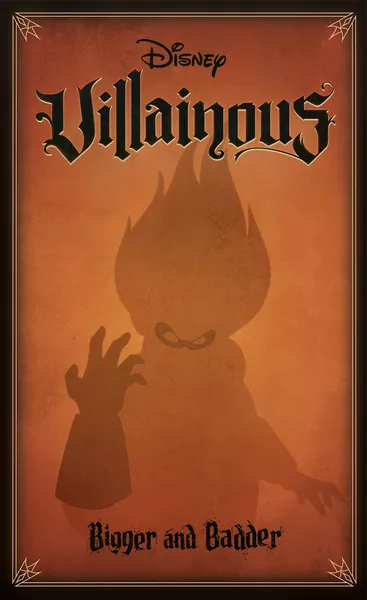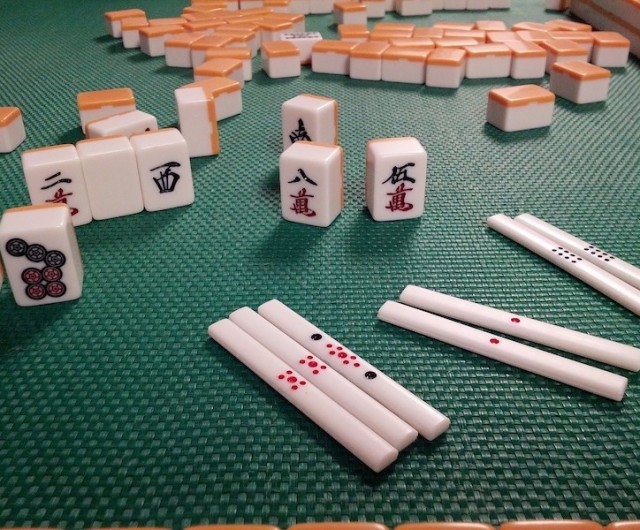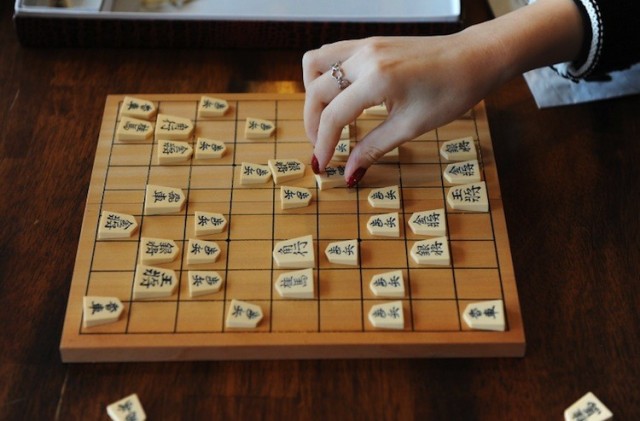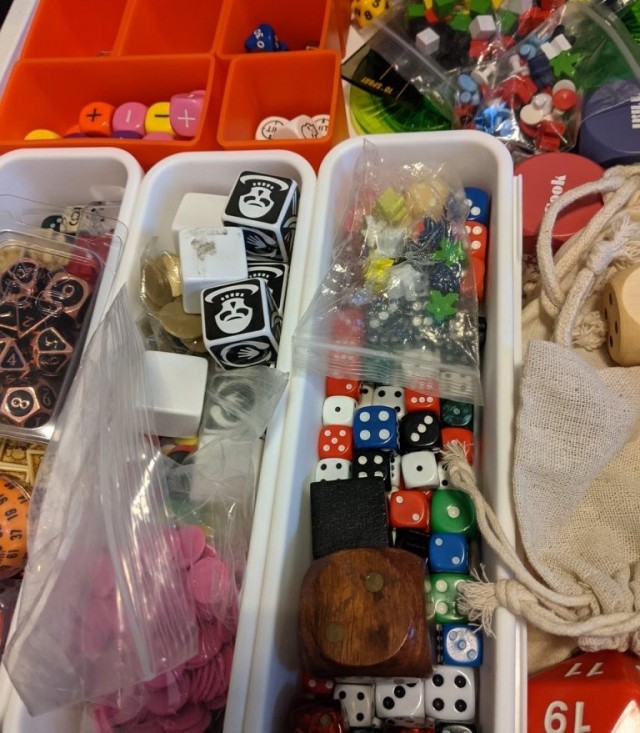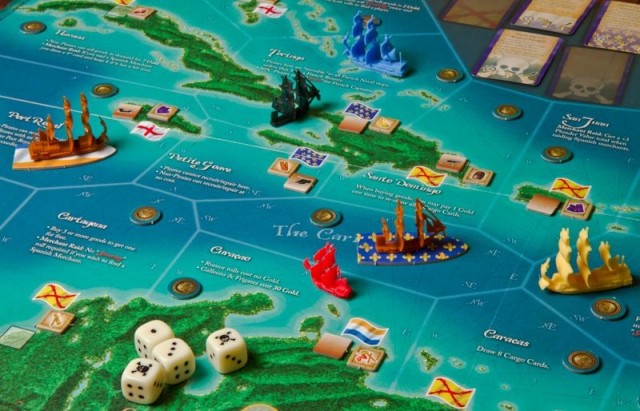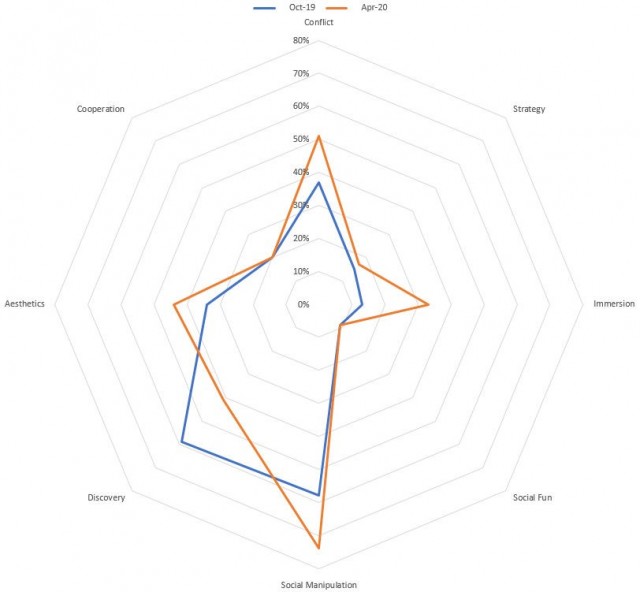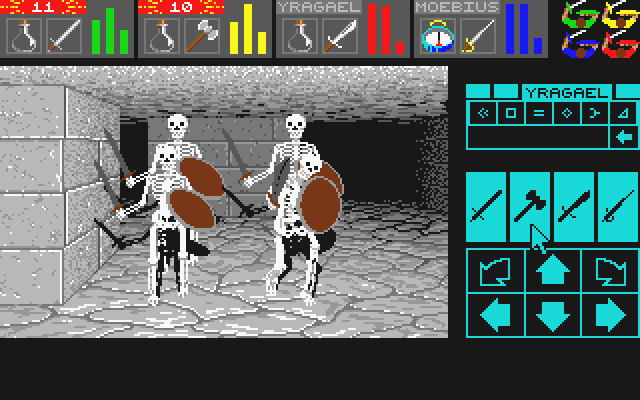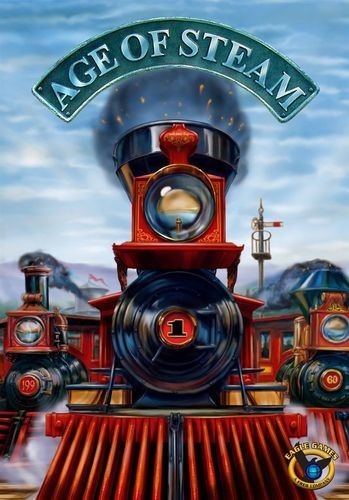Everyone has some common phrase or idiom that makes them angry. Itmight be because it’s overused, or because it’s nonsensical, or maybebecause they dislike the connotations of the meaning. Being an angrysort of person, I have quite a lot of them, and being a gamer many ofthem are from the world of gaming. Like “broken” for example becauseit’s a dreadfully overused term that doesn’t actually mean anythingwith regards to games, because the criteria for what constitutes“broken” varies hugely from player to player. The most recent additionto the list of phrases that makes me cringe when I see them is,hypocritically enough, one I’ve used repeatedly in the past myself.That phrase is “multi-player solitaire”.
I began to re-evaluate the phrase relatively recently after I’d played my first game of Race for the Galaxy. I was expecting to hate and loathe this with a vengeance: so much so that I was thinking of bowing out of the game night on which it was being proposed. But I went and, to my surprise, found I rather liked the game. Not likely to become a favourite, certainly, but it was quick, fairly challenging, kept you thinking on your feet and, most unexpectedly of all, I found myself won over by the theme. This isn’t some dressed-up abstract like Dominion but a proper space empire building game, albeit stripped down to its thematic “bare bones” but which nevertheless gave me a real feeling of creating and running a small galactic civilization. I usually dislike efficiency games in general, but I do try to have some breadth in my play experience, and RftG looks to have the legs to replace Puerto Rico as my efficiency game of choice and thus the only one I’ll likely play. But it wasn’t all good news: aside from my basic distaste for games in this style I found the mechanics and iconography dreadfully confusing at first, and it was most certainly a game to which I’d apply the label “multi-player solitaire”.
Now this article isn’t going exactly where you might be thinking it is, because in essence I’m not averse to the term as a descriptor and used in that fashion it most certainly does apply to RftG. Yes, I know very well that you need to watch what your opponents are doing and collecting so that you can avoid picking similar paths, make sure you’re not falling behind and maybe think about hanging on to cards they might need just to annoy them. But this is all indirect interaction and indirect interaction can, and usually does, lead to games that have a mechanical “closed” approach to strategy in which mathematics and analysis dominates over more creative tactics. As soon as you add direct interaction into the game you add another element of uncertainty - the experience and psychology of your fellow players and that’s usually enough to open the game out without spoiling the balance of luck against skill. So I’m not usually a big fan of games that feature indirect interaction. But there’s the first rub with the term “multi-player solitaire”. Whilst I totally get what it’s trying to indicate about a game, it’s technically wrong. Yes, you don’t have anything to do directly with the other players in the game, but you’ll still end up ignoring them at your peril.
But I’m not telling you anything you didn’t know here. Fans of indirect interaction have made this point before, and I’ve repeatedly made clear that this form of interaction isn’t usually satisfying to my personal tastes and that isn’t about to change. But this wasn’t what was on my mind after playing Race: indeed there was nothing in particular about the game that made me think that the multi-player solitatire tag was wrong. It was playing a game which often attracts the label that made me think about the label itself.
And what struck me, rather suddenly, is that the term is used exclusively in a pejorative manner. When someone says something is multi-player solitaire it’s always meant as an attack, a criticism. People who like indirectly interaction games, in turn, never ever use it purely as a descriptor - they never try and defend the critique by saying that multi-player solitaire is actually just the way they like their games, thanks very much, so that’s the way they want to keep them. So putting that pejorative label on to a game that I actually thought was pretty good seemed rather out of kilter. That’s what made me start wondering.
Because it further occurs to me that a lot of the people who use the term as a critique will in fact happily support a number of games which have, if anything, less interaction than efficiency games. There exists an entire genre of games which have virtually no player interaction at all, even of the indirect kind, to the point where many of them play extremely well solo with no modifications to the base game at all - indeed in some you’d be hard pressed to notice that there weren’t any opponents around. I’m talking of course about that sub-set of competitive adventure games which don’t have a PVP mechanic. There’s quite a few of them about: Dungeonquest for example, or more recently Return of the Heroes. These games have zero interaction and yet they tend to be popular with people who’ll happily throw around “multi-player solitaire” as an insult. Including, it has to be said, me. Indeed it was when I sat down to review Dungeonquest that it first struck me that, much as I love the game, I ought to criticise it for being largely solitaire since it was something I’d criticised numerous games in the past for being. But seeing as I loved the game, was it really something that ought to be the basis for criticism after all?
The other good reason to be revisiting the term now is because recently, it seems to me, designers working in the limited interaction Euro paradigm seem to have been making a conscious effort to break out of the soullessly mathematical approach to games that is engendered by not letting the players beat on one another from time to time. Starting with Agricola, the idea seems to have taken root amongst Eurogamers that one can still have highly demanding, rigid games but that simply by chucking a lot of variety somewhere into the mix, the trap of creating a "solvable" game in which there is one sure path to victory which all the players must try and pursue as perfectly as possible, can be avoided. The medium of choice seems to be cards: alongside Agricola you can also lump Dominion and of course Race for the Galaxy as examples of this trend. And whilst for the most part I find these games as charmless as ever, it's still a welcome trend because it extends interest, variety, potential play time and so moves gamers away from the endless churn of the cult of the new.
Before we go any further it seems sensible to suggest a replacement for “multi-player solitaire” so that I can start using it. As I’ve already said there are two kinds of games which seem to deserve to fall into this descriptor - indirect interaction games and near-zero interaction games. What unifies both of these is that the amount of player interaction is fairly minimal: even in indirect interaction games there’s not a lot of it that goes on, and you can often get quite a long way by effectively ignoring your fellow players and concentrating on what you’re doing. So it seems that a better term is simply “low interaction” games: it’s technically accurate and does pretty much what it says on the tin. Hopefully I can trot this out in the future without the insulting connotations that multi-player solitaire has picked up - if, like me, you don’t usually like low interaction games, then great, you can steer clear but you can do so without heaping abuse on people who do like low interaction games.
Having got that out of the way I thought I’d conclude this piece with a brief examination of why it is that low interaction games managed to garner a semi-abusive tag from those who dislike them. Well I’ve touched on one already - the division in taste between high and low interaction games is probably one of the deepest in gaming. If you like lightweight family Eurogames, you’re not going to want high interaction games that cause conflict, strife and recrimination. If you like deeply mathematical euros and abstracts, then lots of interaction is just going to be too much chaos and disruption for all the hard work you’re putting in. If you do like high interaction games then almost anything else is going to seem tame, dull and possibly even anti-social from your point of view. It’s not an insurmountable divide: even the most hardcore wargamer is probably going to want a copy of Kingsburg or somesuch to play during family time. But the two sides are clearly going to have a hard time appreciating each others position.
At the risk of sounding like a broken record, I’m going to assign the other portion of the blame to this split to the limitations and over-exploitation of various low interaction mechanics. Low interaction games almost necessarily have very limited decision trees. There are rare exceptions, and RftG is one such, and that’s part of the reason I like it. But with a limited decision tree there almost always comes a correspondingly limited shelf-life. So it’s unfortunate that legions of these games make up a goodly proportion of the endless game churn that makes up the cult of the new which I so deplore. Far too many of these games look like faceless clones to me. I recognise that there are similar arguments from the other side of the divide, such as the one which says all negotiation metagame games are effectively the same but I’ve disabused that notion in the past. Besides which there are plenty of high interaction games that either don’t feature or seriously limit the impact of negotiation to make it a charge that really sticks, especially weighed up against the huge amount of extra variability these sorts of games offer. Games such as Race and Agricola have demonstrated that low-interaction games don’t need to have limited options, nor that they all need to look the same. If fans of these games are fed up with the pejorative connotations of “multi-player solitaire” the answer is to go looking for better takes on the genre as much as it is to change the language used to describe them.
 Games
Games How to resolve AdBlock issue?
How to resolve AdBlock issue? 
